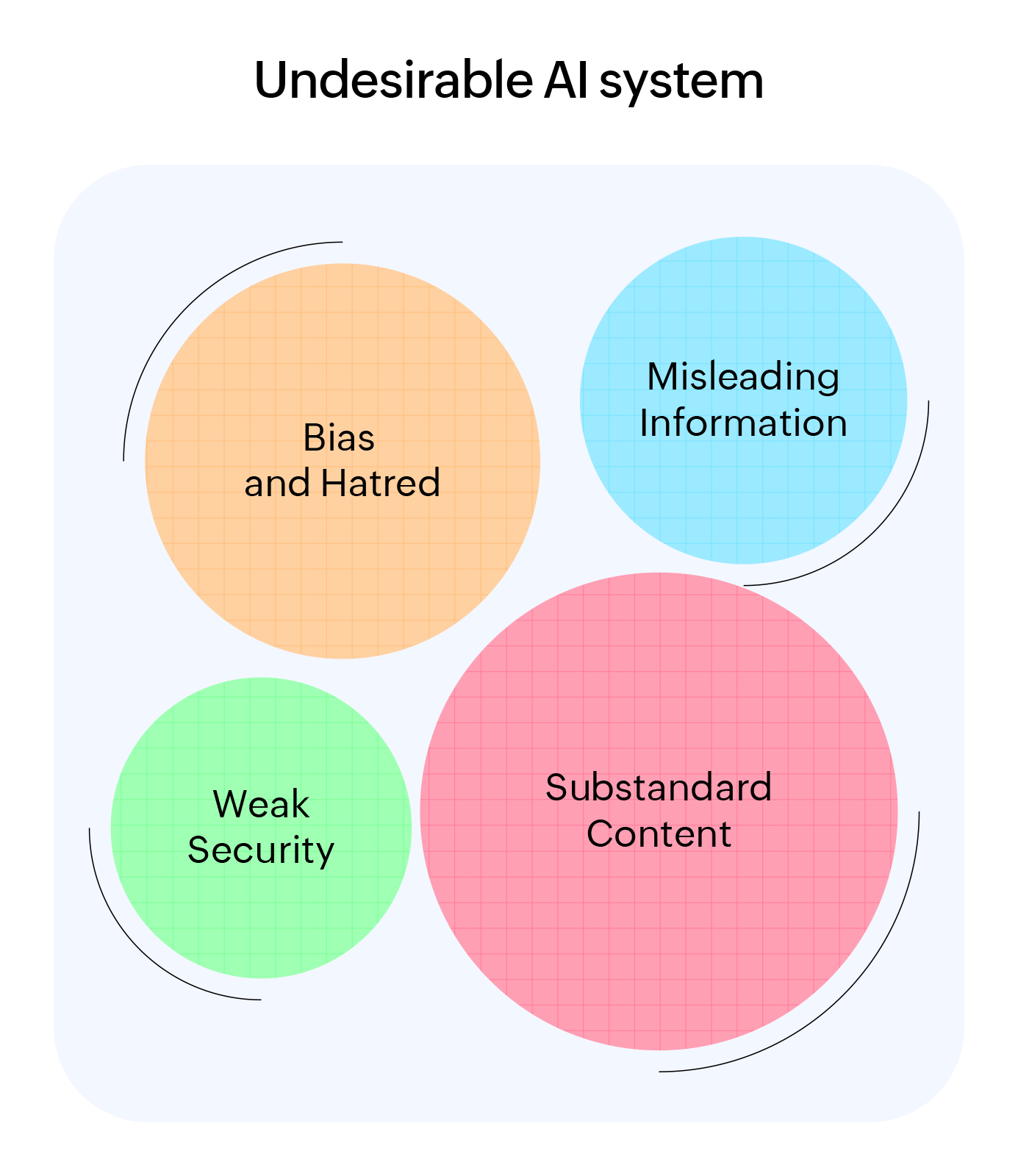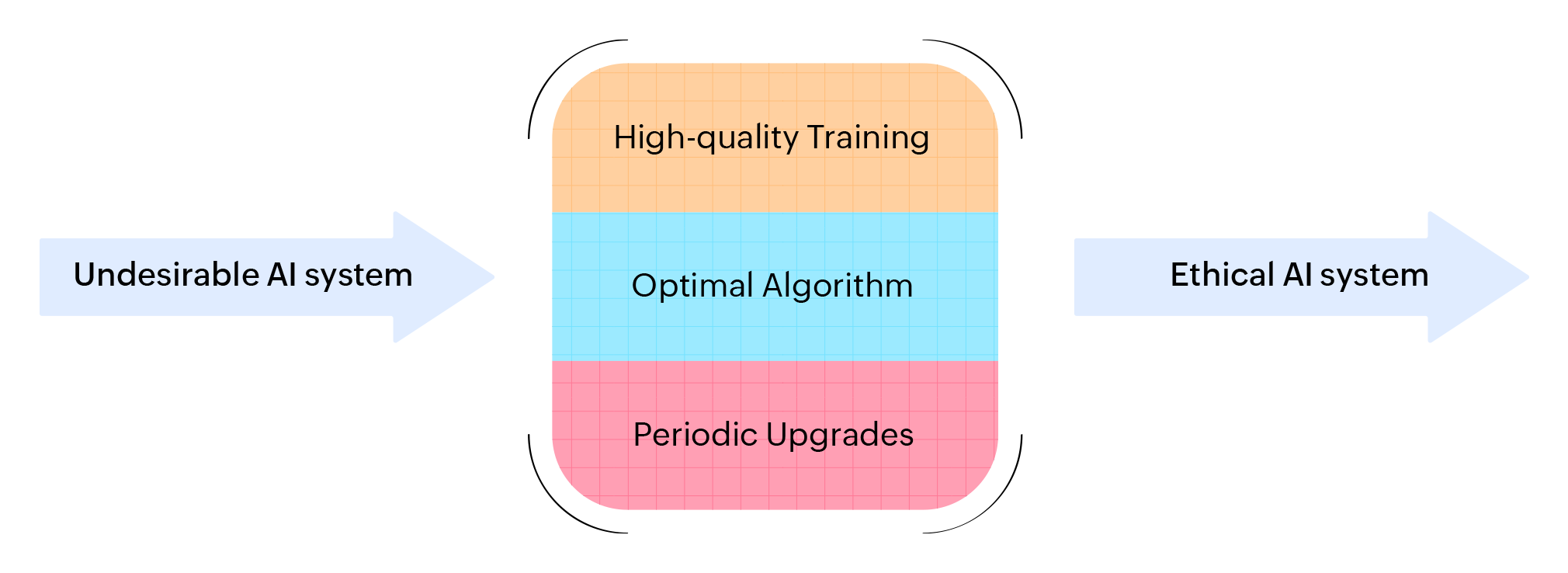Perceiving AI through the ethical lens
- Last Updated : September 11, 2024
- 1.0K Views
- 3 Min Read

AI - An ubiquitous entity
AI has now become so common that even mentioning this fact would be a cliche. In the business world, it has disrupted job roles and redefined the way businesses operate across the world. AI can automate routine tasks, minimize manual errors, provide analytical insights, write content, generate designs, and the possibilities are expected to keep growing.
The flip side of AI
Notwithstanding its immense benefits, AI has its share of concerns as well. Let us have a closer look at them.
Misleading information
AI offers a plethora of information and insights that empower businesses to help understand customers and strategize better. However, there are chances of AI fetching information that might be incorrect or end up presenting the information in a misleading manner. This results in insights that cause more harm to the business than good.
Bias and hatred
Similar to real-life scenarios, there are possibilities of AI providing data that promotes or is outright hateful or biased towards certain individuals or groups. If not identified and handled with utmost sensitivity, the organization runs the risk of ending up with a discriminative outlook.
Subpar content
There can be cases where AI generates substandard content. Even when fetching content from the web, the content might not be relevant. Using these insights might result in bad communication with customers. Even if modified, it might be time-consuming and hence defeat the very purpose of AI productivity.
Security and privacy risks
There could be instances where AI models can be hacked, and sensitive information might be extracted and misused. Even if used for the right purposes by genuine sources, extracting such sensitive information might compromise the privacy of those concerned.

AI ethics to the rescue
How can these worrying factors be addressed? AI can enhance the productivity and quality of work many folds when utilized the right way. This is where AI ethics chips in. As the name suggests, AI ethics are principles that need to be incorporated in AI models to ensure the integrity of customers. This can be accomplished in the following way :
Training
For any AI model to function well, it has to be trained well. Whether it's trained with manual intervention or programmed for auto-learning, the training data needs to be accurate and equitable. As good is the training data, so shall be the results.
Algorithm
AI algorithms should be designed to identify inappropriate or sensitive data and filter them out. This impartial data must be processed efficiently to provide authentic results with high moral standards. Models also should be programmed with security measures to safeguard customers and their data from being exploited.
Upgrades
Technology witnesses one of the fastest changing landscapes, and AI is no exception. WIth changes in trends, new types of unethical practices are bound to emerge. The ethical measures implemented in AI models must be constantly upgraded to mitigate undesirable developments.

Integrity in every interaction
Zoho CRM places AI ethics at the forefront in its numerous AI capabilities offered through its AI assistant Zia. Zoho CRM employs security filters to protect sensitive information from unauthorized access or misuse. This involves identifying and removing any Personally Identifiable Information (PII)—and then undergoing preprocessing steps like normalization and HTML parsing.
Zia's anomaly detection model detects and prevents potential attacks or anomalies. It's toxicity detection model scrutinizes the data to identify and address any harmful or offensive content.
Zia also uses sentiment and keyword analysis, content comparison, and statistical metrics to identify patterns or errors. Outputs undergo analysis by an ensemble of Zia models to detect potential security vulnerabilities.
By ensuring adherence to high ethical standards, Zoho CRM provides the best out of its AI offerings and provides a secure and dependable customer experience.


